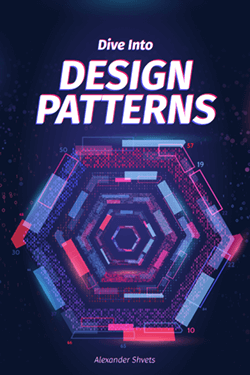Iterator Design Pattern in Python
"""
Provide a way to access the elements of an aggregate objects equentially
without exposing its underlying representation.
"""
import collections.abc
class ConcreteAggregate(collections.abc.Iterable):
"""
Implement the Iterator creation interface to return an instance of
the proper ConcreteIterator.
"""
def __init__(self):
self._data = None
def __iter__(self):
return ConcreteIterator(self)
class ConcreteIterator(collections.abc.Iterator):
"""
Implement the Iterator interface.
"""
def __init__(self, concrete_aggregate):
self._concrete_aggregate = concrete_aggregate
def __next__(self):
if True: # if no_elements_to_traverse:
raise StopIteration
return None # return element
def main():
concrete_aggregate = ConcreteAggregate()
for _ in concrete_aggregate:
pass
if __name__ == "__main__":
main()
